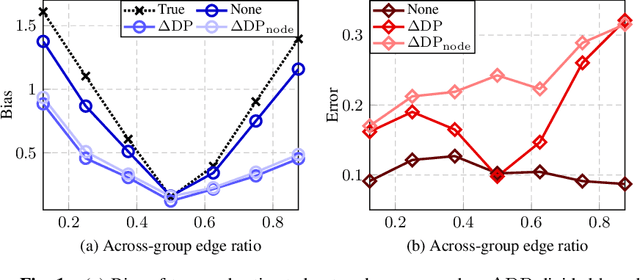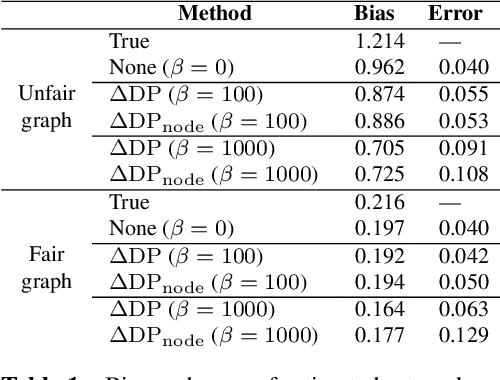Mitigating Subpopulation Bias for Fair Network Topology Inference
Paper and Code
Mar 22, 2024


We consider fair network topology inference from nodal observations. Real-world networks often exhibit biased connections based on sensitive nodal attributes. Hence, different subpopulations of nodes may not share or receive information equitably. We thus propose an optimization-based approach to accurately infer networks while discouraging biased edges. To this end, we present bias metrics that measure topological demographic parity to be applied as convex penalties, suitable for most optimization-based graph learning methods. Moreover, we encourage equitable treatment for any number of subpopulations of differing sizes. We validate our method on synthetic and real-world simulations using networks with both biased and unbiased connections.
 Add to Chrome
Add to Chrome Add to Firefox
Add to Firefox Add to Edge
Add to Edge